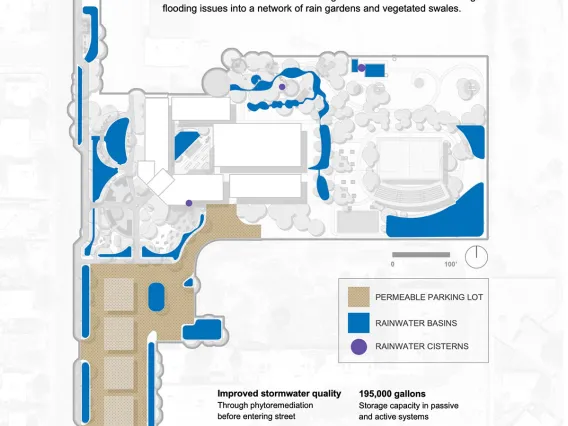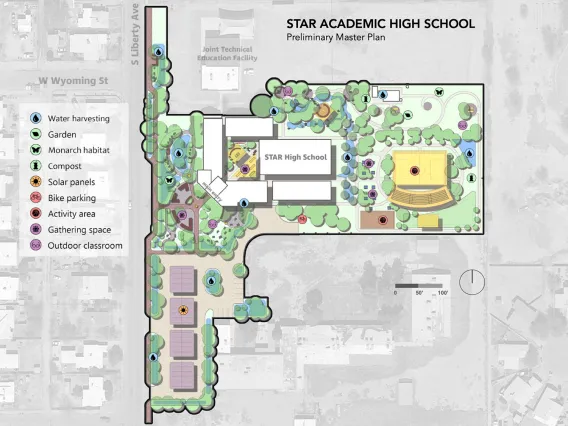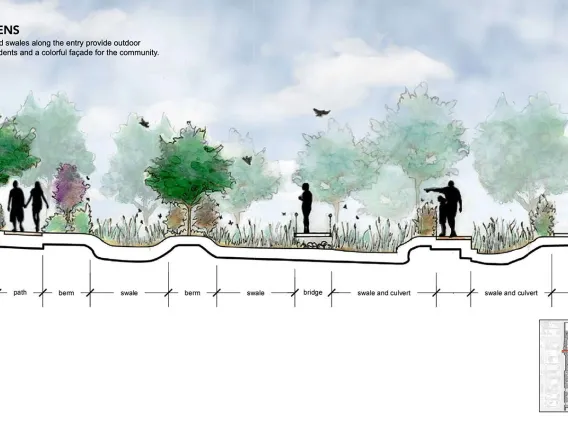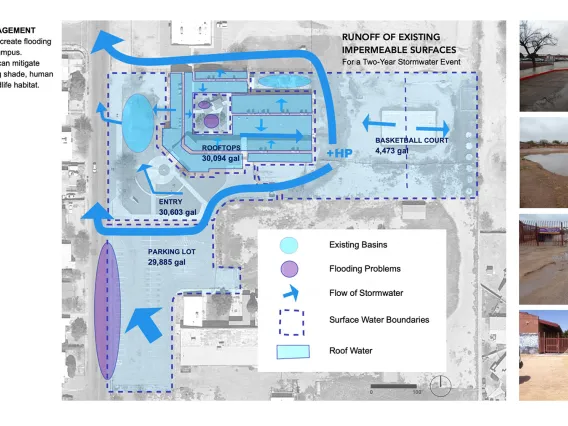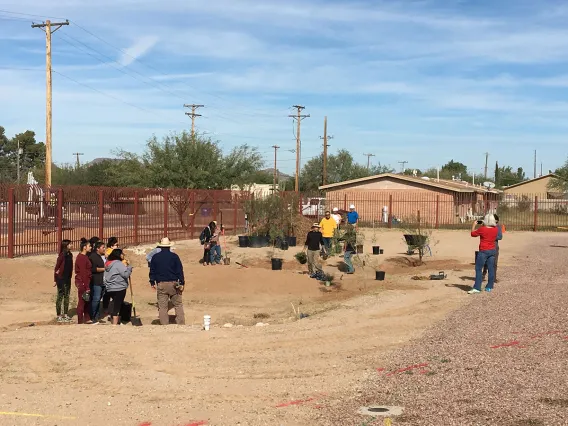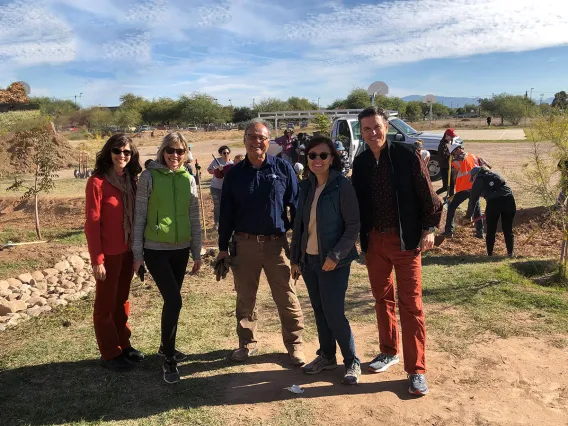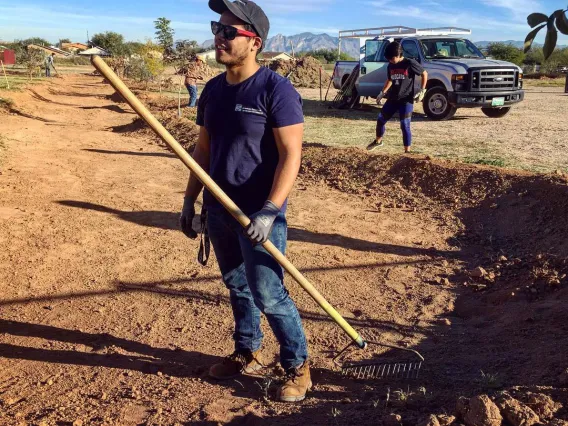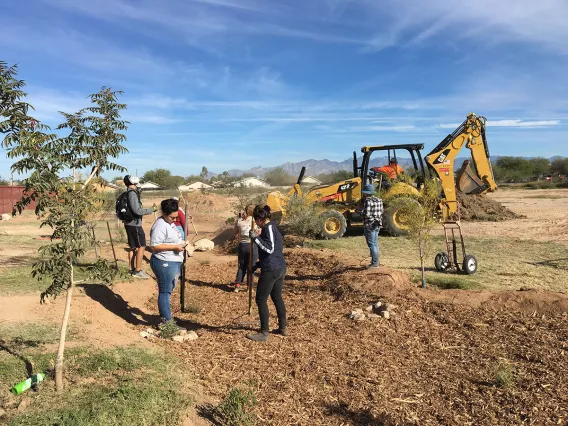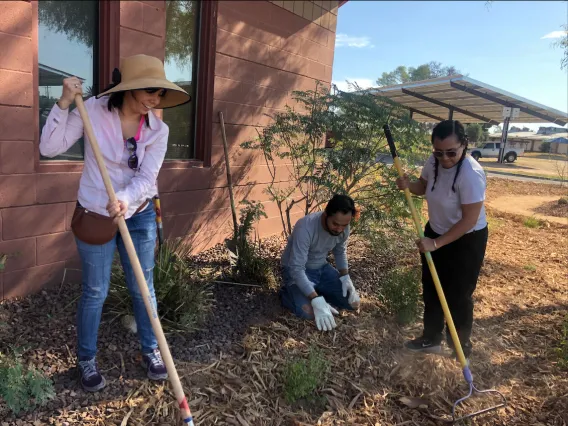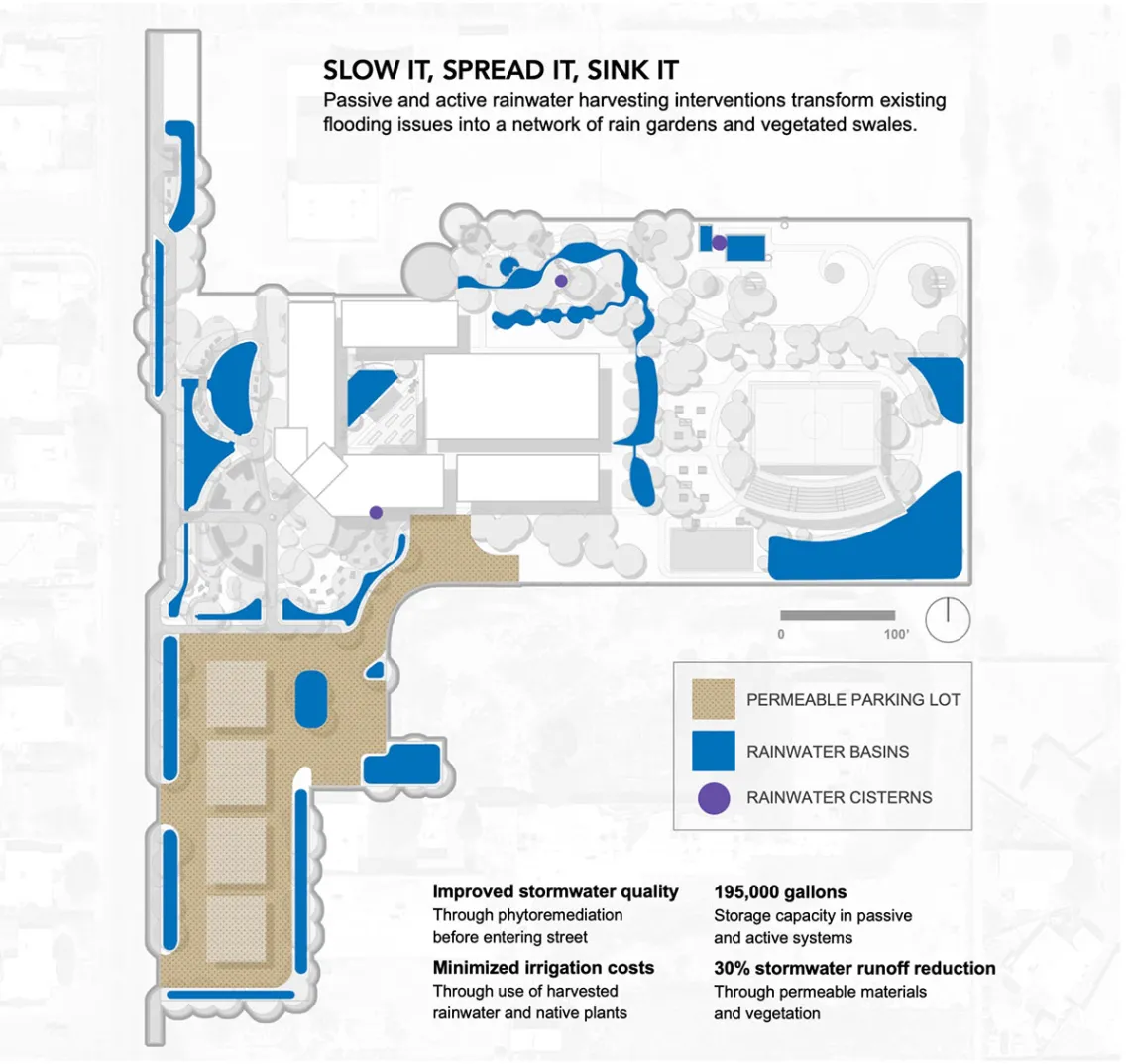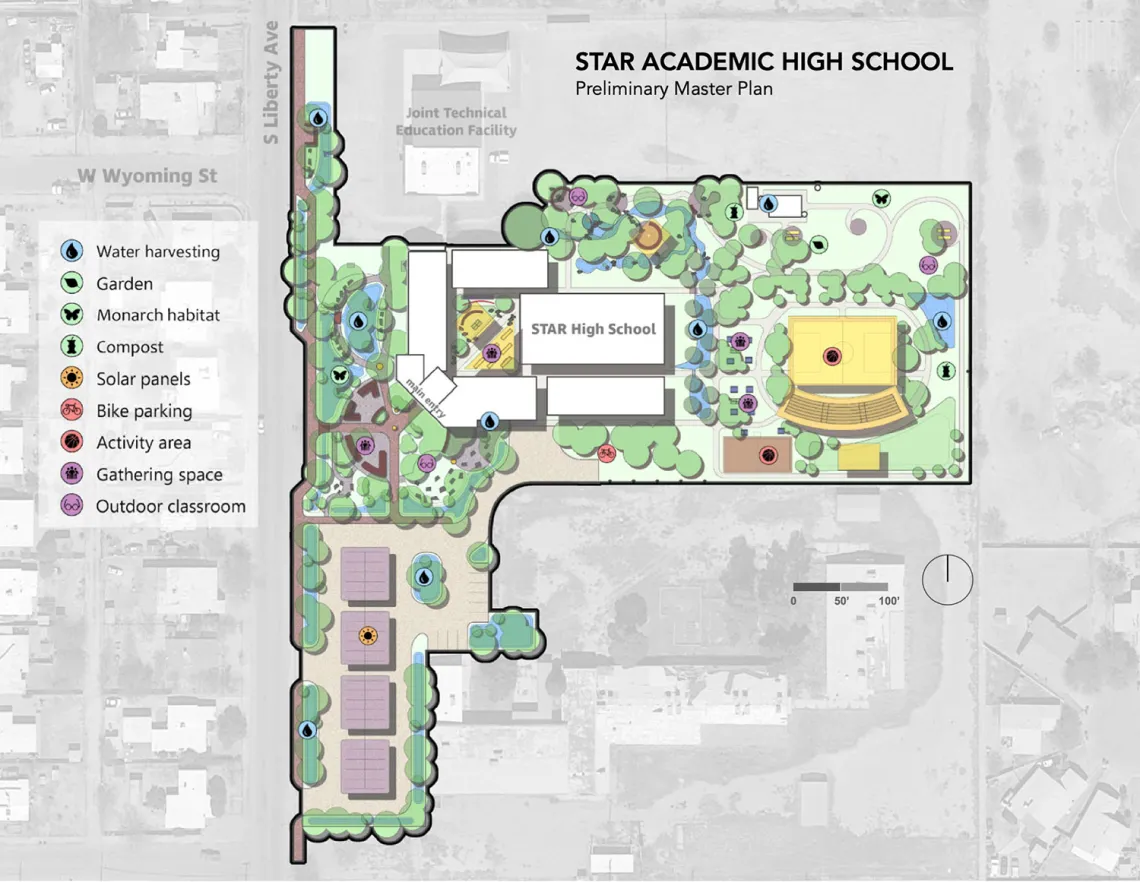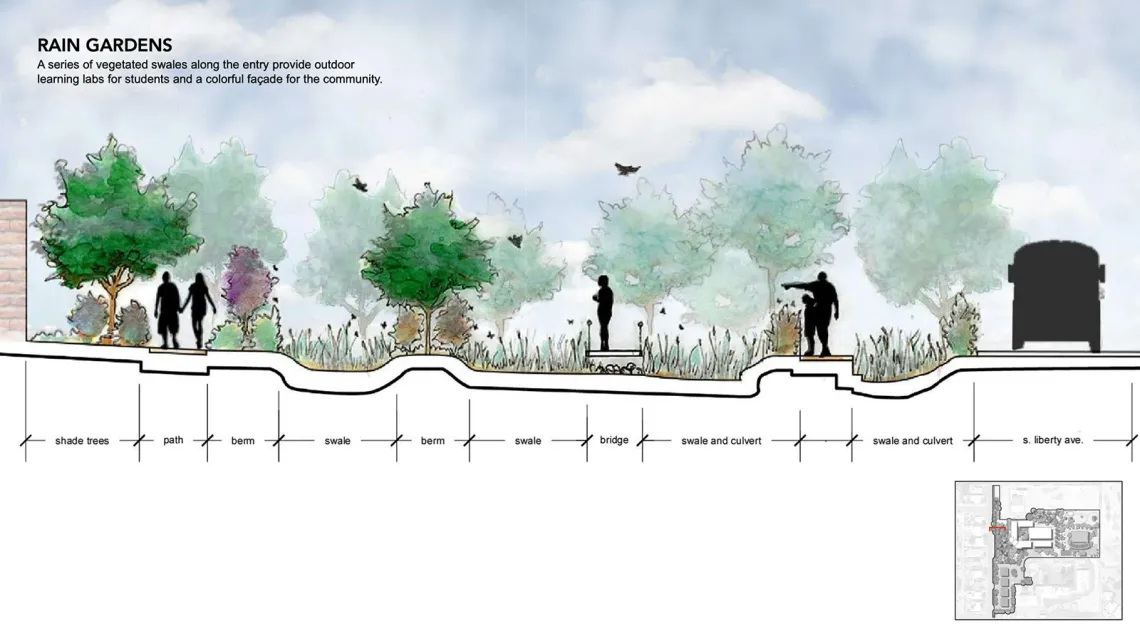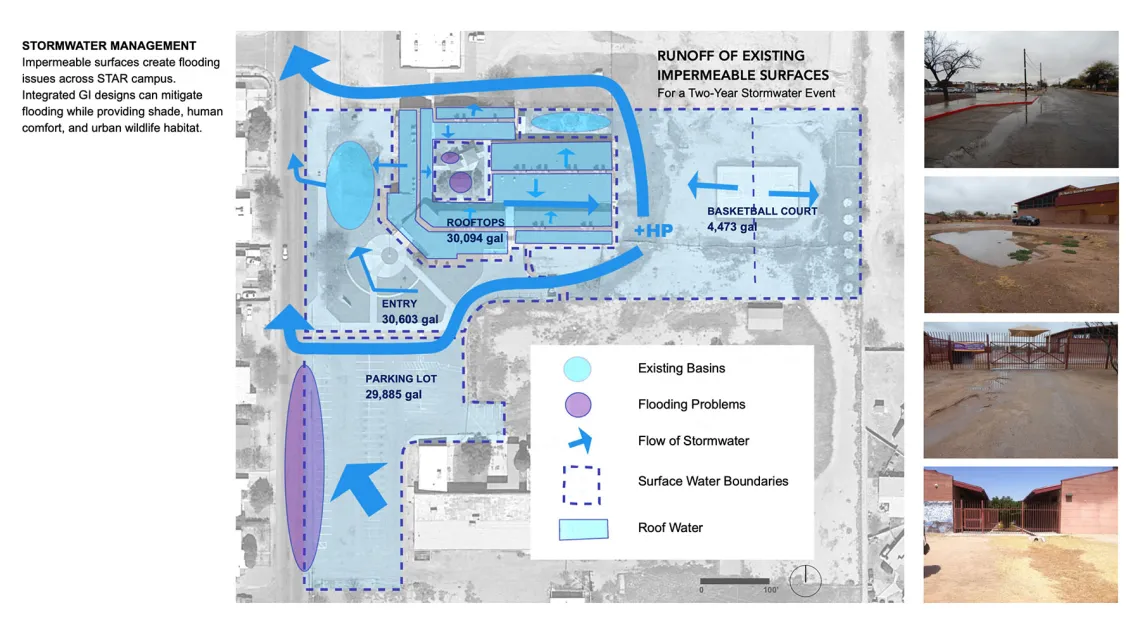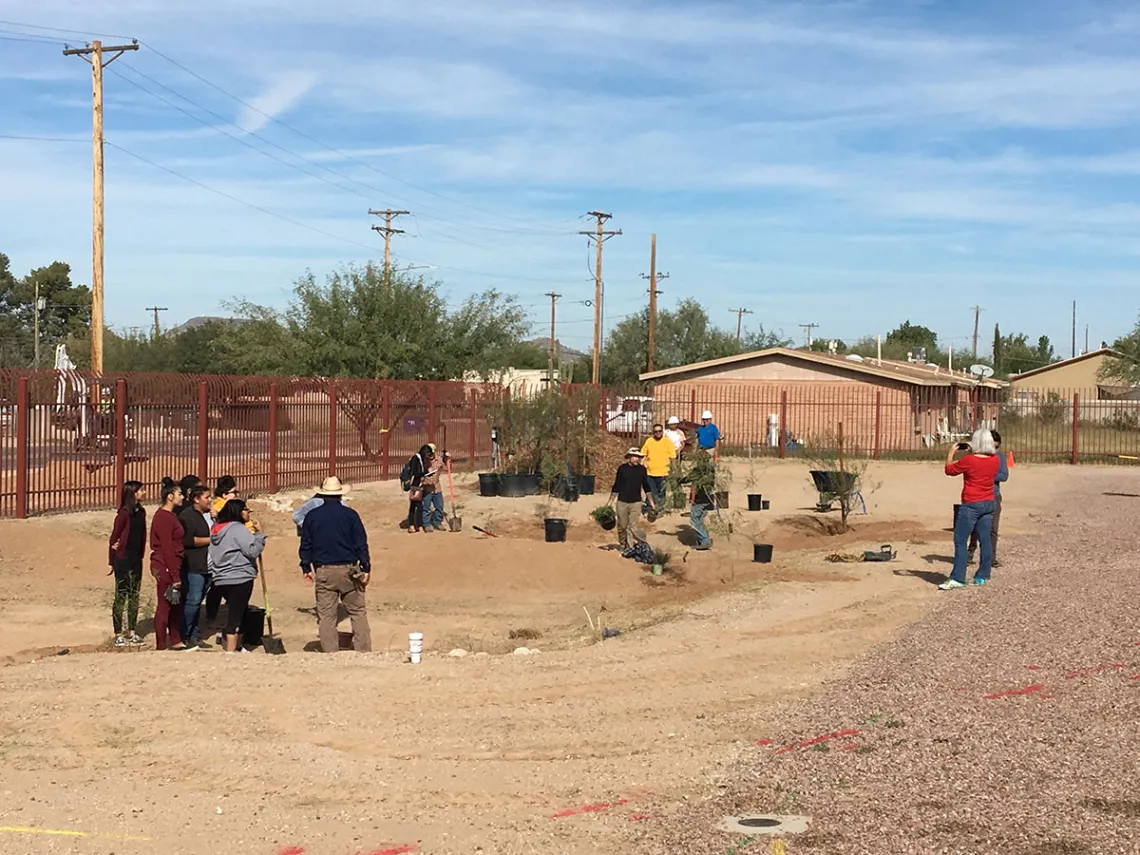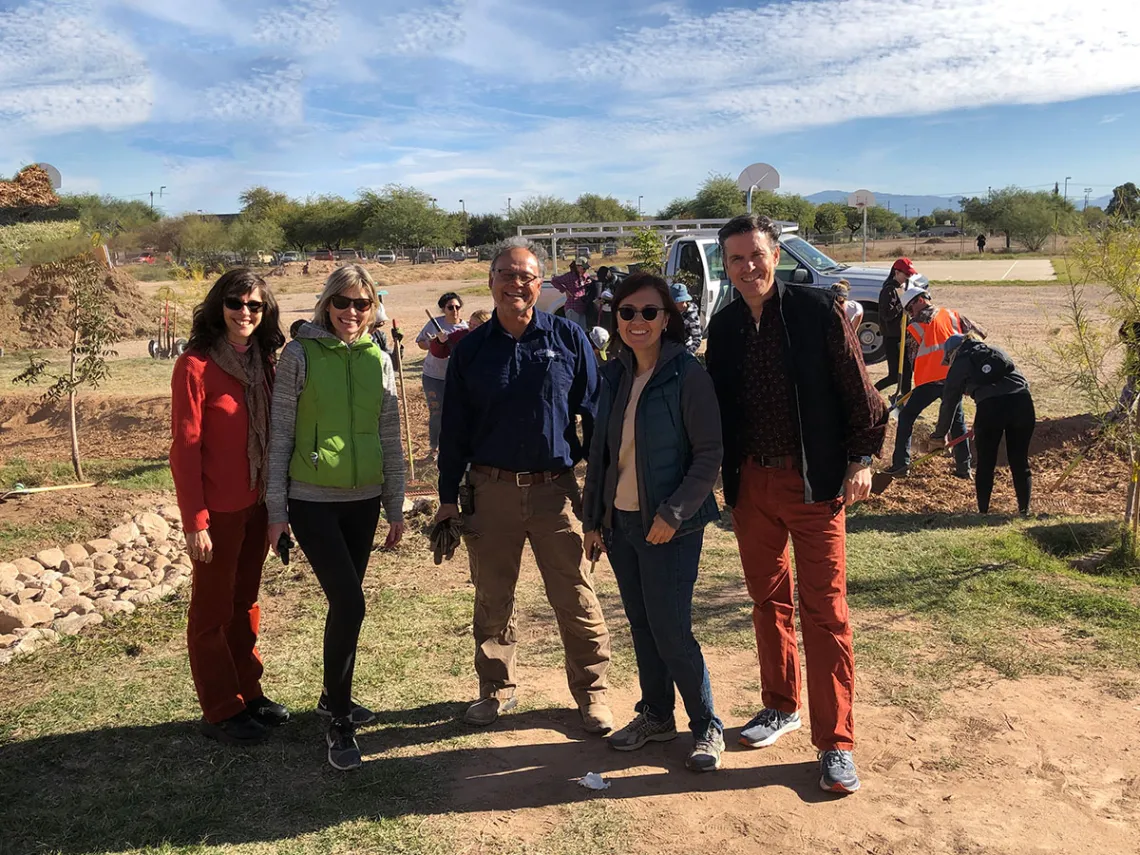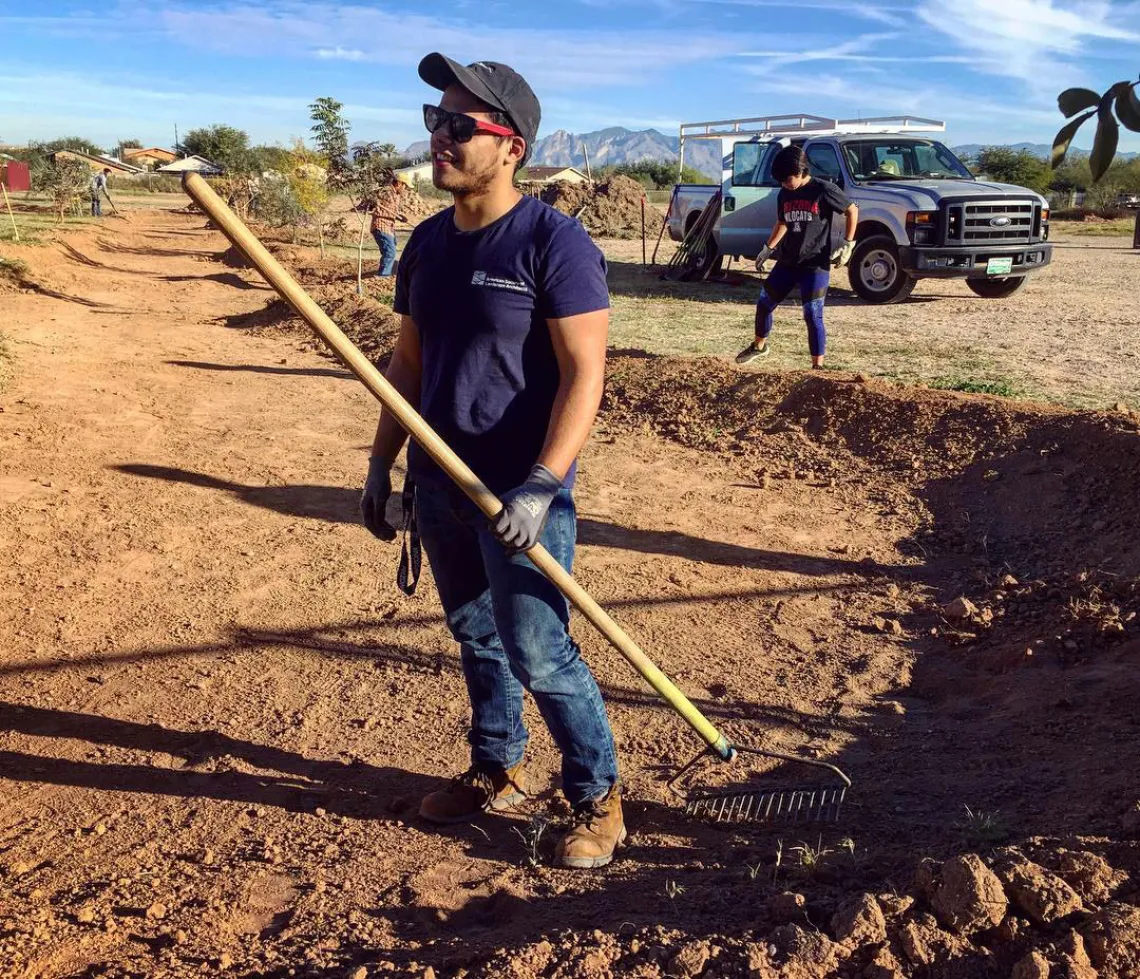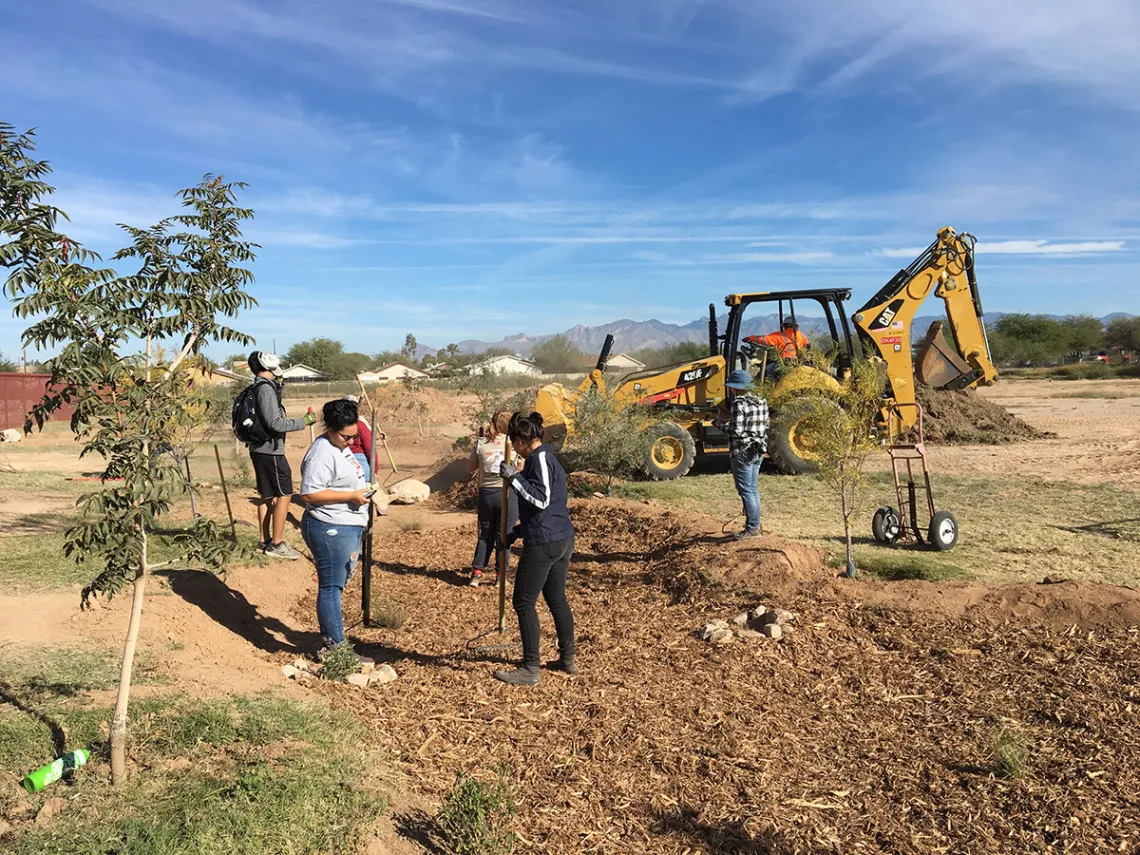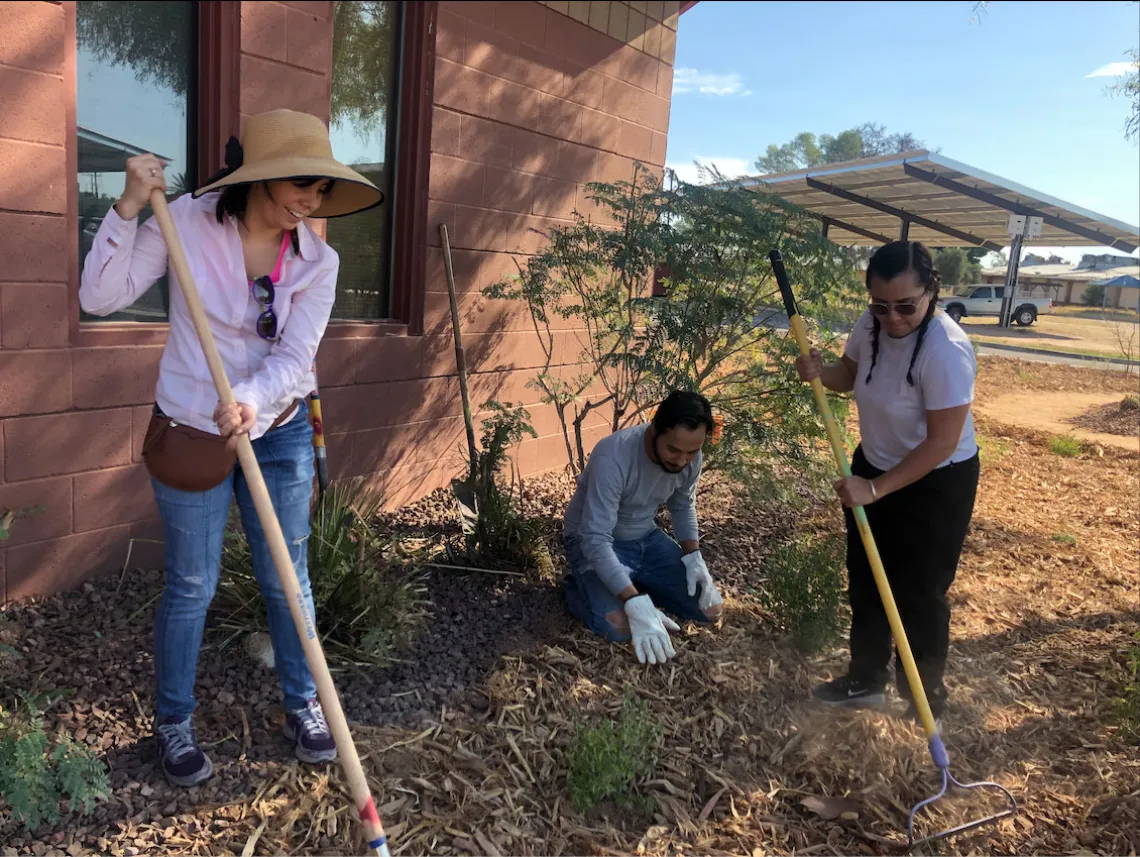Tucson Verde Para Todos: CAPLA Faculty and Landscape Architecture Students Engage South Tucson Community through Green Infrastructure
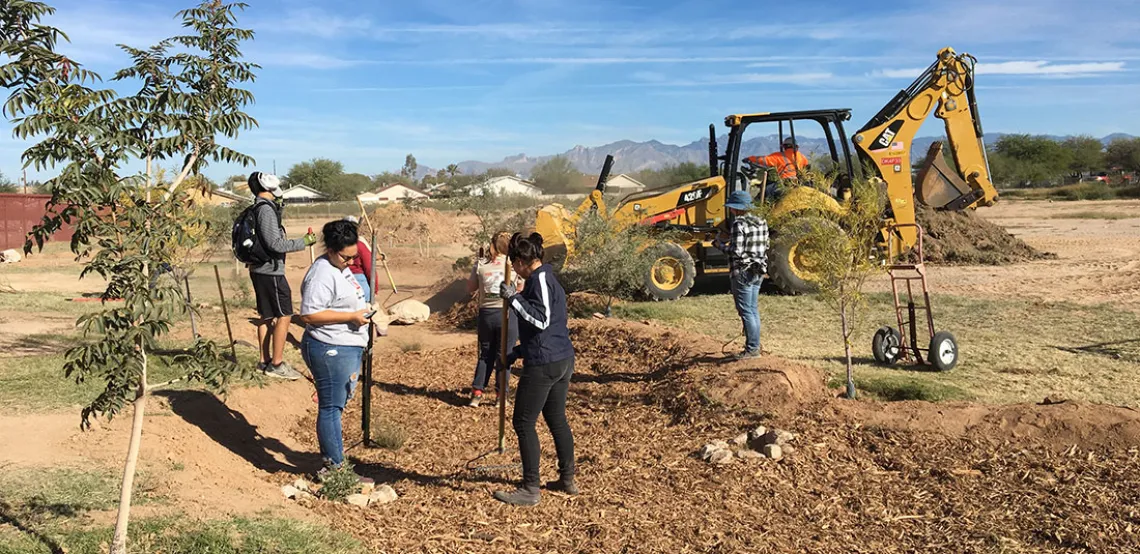
University of Arizona and Star Academic High School students at work on green infrastructure. Photo courtesy Adriana Zuniga.
Andrea Gerlak, professor in the School of Geography, Development and Environment, and Adriana Zuniga, assistant research scientist in the College of Architecture, Planning and Landscape Architecture, recently published a paper in Socio-Ecological Practice Research titled “Addressing injustice in green infrastructure through socio-ecological practice: What is the role of university-community practice?”
In their paper, Gerlak and Zuniga describe lessons learned during a three-year-long outreach project at Star Academic High School, located in the south side of Tucson, in an area mostly deprived of vegetation and also vulnerable to heat and flooding.
This project, Tucson Verde para Todos, aimed to address injustices around green infrastructure by promoting a strategy to address inequities in green infrastructure funding, siting and implementation through collaborative, participatory community engagement to facilitate the design and adoption of green infrastructure demonstration projects in traditionally underserved, low-income communities in southern Tucson.
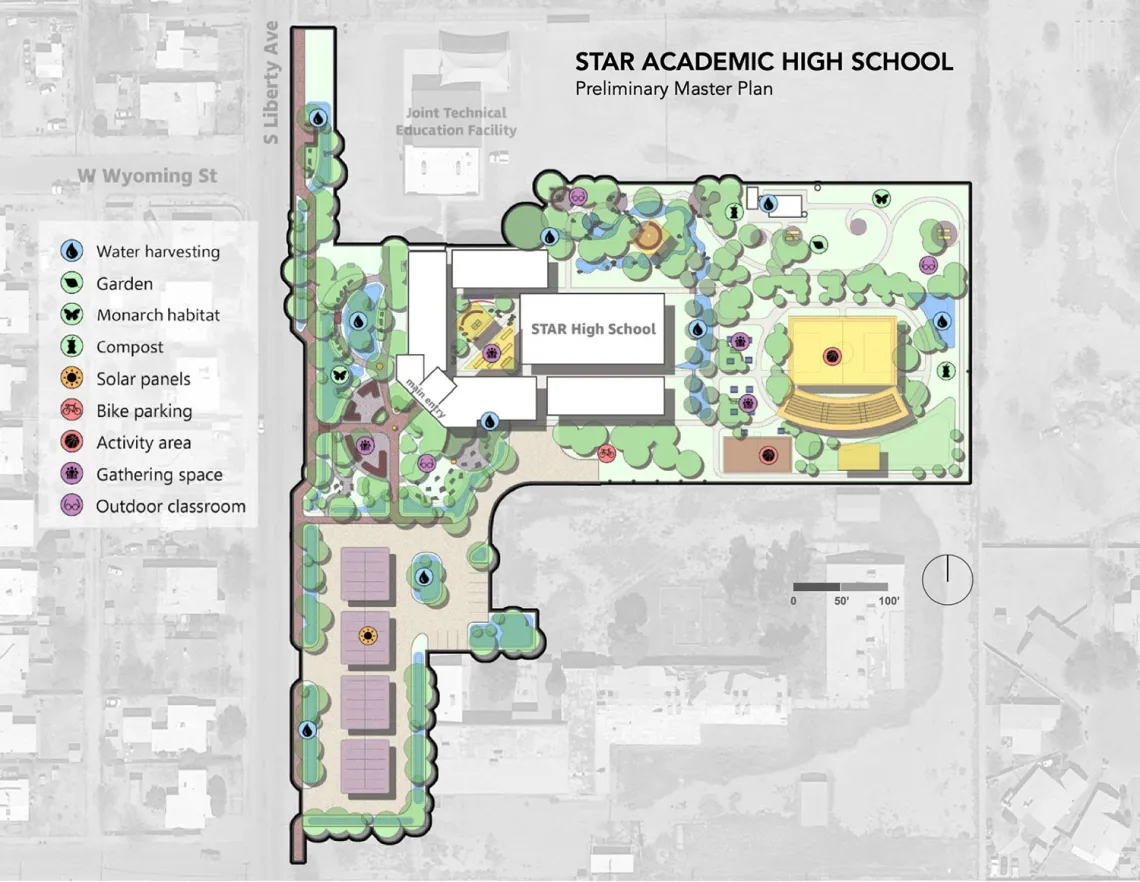
Star Academic High School Preliminary Master Plan. Image courtesy Bo Yang.
Through a robust, participatory process that was responsive to the needs of the community and designed to strengthen community cohesion by engaging residents in a meaningful, sustainable way, the researchers aimed to address inequities and overcome historic distrust. To achieve their goals, they explored a variety of engagement strategies, mindful to learn from past experiences in the community.
The research team partnered with local organizations including Watershed Management Group, Sonoran Institute and Tierra y Libertad Organization to engage the Star Academic High School community in the planning, design and implementation of green infrastructure at the school.
The researchers also partnered with CAPLA Professor of Landscape Architecture and Urban Planning Bo Yang, who used the school as the site for a landscape design studio. CAPLA Master of Landscape Architecture students designed the school landscape using participatory design methods that incorporated the needs and wants of the school community.
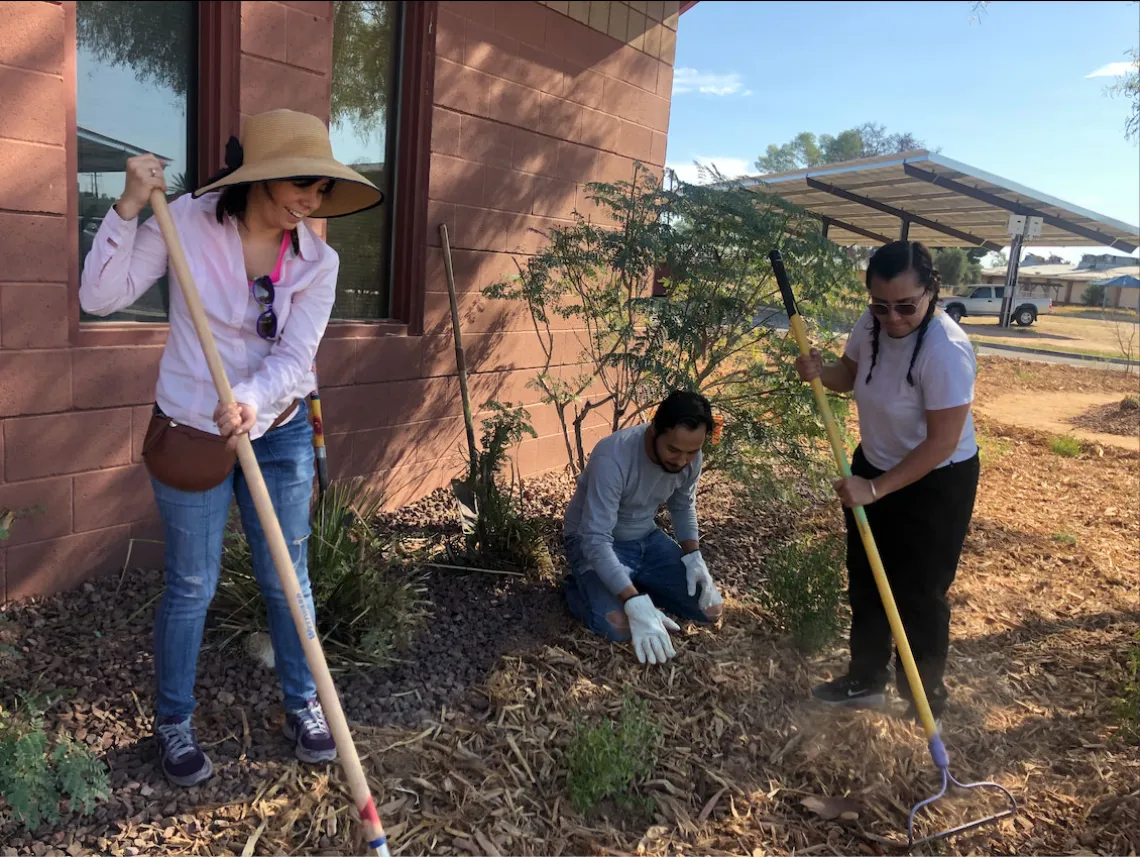
UA students install green infrastructure alongside Star Academic High School students. Photo by Adriana Zuniga.
Through several internship and volunteering opportunities, the researchers also involved 30 university students, providing hands-on opportunities for learning for the college students while testing a youth-to-youth mentorship program aimed at high school students. Their engagement with Star Academic High School students was successful because of the youth mentoring model, a success story that provides valuable lessons for future university-community partnerships.
The Tucson Verde para Todos project was funded by the Agnese Nelms Haury Program in Environment and Social Justice, the University of Arizona Green Fund, and a seed grant from CAPLA.
Image Gallery
Click a thumbnail below to view a larger image and begin slideshow:
All images are by Bo Yang/Master of Landscape Architecture students and/or Adriana Zuniga and may not be used or reproduced without express written permission of their creator.

